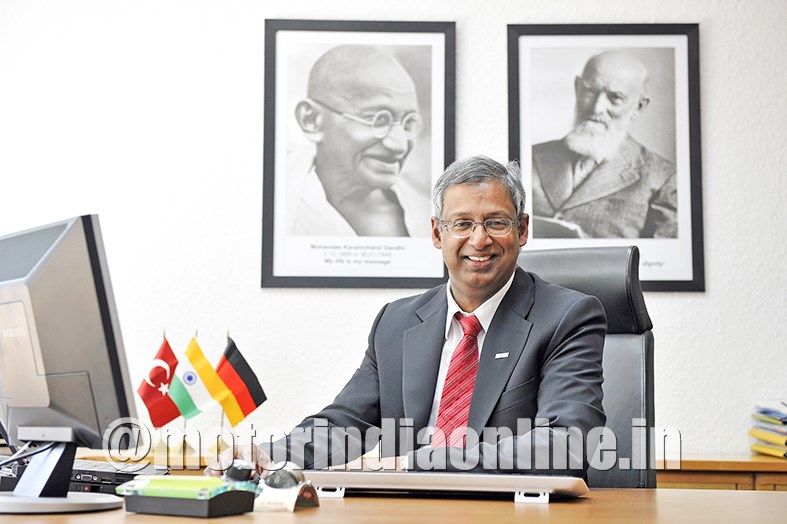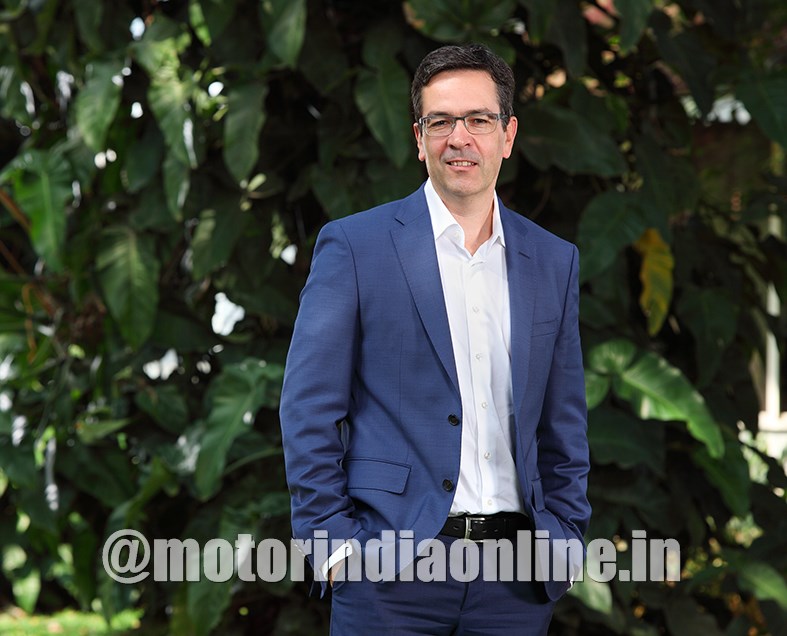Innovative solutions to ecological problems in focus
The technology and services company, Bosch Ltd., has posted luminous growth rate figures for the fiscal year 2018-19. Presiding over the announcement in late May 2019 were Mr. Soumitra Bhattacharya, President, Bosch Group India, and Managing Director, Bosch Ltd., and Mr. Jan Oliver Roehrl, CTO, Bosch India Mobility Solutions, and Additional Director, Bosch Ltd.

Both took keen interest in elucidating the major areas of transformation in the fast-evolving Indian mobility sector.
Mr. Bhattacharya shared: “The total revenue from operations stand at Rs. 12,258 crores for the fiscal year 2018-19 which is an increase of 4.9 per cent over last financial year.”
Bosch’s total revenue from operations stood at 19.1 per cent out of which the Profit Before Tax (PBT) grew by 14.7 per cent to Rs. 2,341 crores.
He said: “The profit growth was driven mainly due to improved operational efficiency, investment income as well as one-time exceptional expense in the previous year. The Net Profit after Tax (PAT) increased by 16.6 per cent to Rs. 1,598 crores in fiscal 2018-19.”
Bosch had made major investments last year to the tune of up to approximately Rs. 597 crores. In the last quarter of 2018-19, Bosch Ltd. posted a total revenue of Rs. 2,749 crores from operations, thus registering a decrease of 12.9 per cent compared to the same quarter of the previous fiscal year. The PBT for the last quarter of 2018-19 stood at Rs. 561 crores, a 20.4 per cent of total revenue from operations compared to 19.9 per cent in the same quarter of the previous year. The decline in profit is mainly attributable to the lower sales volume in view of negative market sentiments and an unfavourable development of exchange rates. PAT stood at 15 per cent of total revenue from operations compared to 13.7 per cent of the last quarter of previous year.
Areas of transformation – the Bosch way
Bosch Ltd. has always reiterated a few areas of transformation in the automotive sector – be it around the world or in India eventually. Mr. Bhattacharya said: “Bosch is driving its business to become a leading IoT company. We have been working on mixing hardware with software and by developing software sensors and services. And Bosch is becoming more and more a leading mobility provider in the world in a bid to positively change the mobility environment.”
He further said: “Bosch Ltd. has always been at the forefront of integrated automotive solutions and we are currently helping our customers develop BS-VI compliant vehicles which will become the norm from April 2020.”

The total revenue of the company’s mobility solutions business showed an increase by 3.3 per cent in 2018-19. Within this business, the powertrain solutions division registered a moderate growth of 2.4 per cent driven by the overall automotive market development in the fiscal year. Besides this, the energy and building technologies, machine building division sectors too posted a double-digit growth and registered an overall growth of 16.4 per cent. The domestic sales too increased by 4 per cent.
He added: “India’s mobility sector is changing fast and the industry is positive to sense an experience a significant growth with electric mobility in the coming years. It is heartening to know that the Indian automotive components industry is set to become the world’s third-largest by the year 2025. And we hope the fiscal year 2019-20 will see a greater contribution by Bosch towards innovations to the industry.”
What the industry has on the horizon is the milestone of BS-VI implementation to get initiated from April 2020 onwards and adopt electromobility solutions tailor-made for the Indian conditions.
Bracing for the industry slowdown
It is important to note that the last quarter of the financial year 2018-19 witnessed a weakness of the overall automotive market.
Mr. Bhattacharya explained: “Despite the less robust growth in the industry, we feel it is poised to grow. The CAGR will be good by global standards yet slightly muted. The Bosch Group expects that regardless of the difficult environment in the industries and regions that are important for the company, our sales in the current year to be better than the levels observed in 2018. The expected growth could be anywhere in the band of 6.5-7 per cent. India has one of the largest middle class growing and we are the seventh largest country GDP wise, we are also the third in the world in our purchasing power. India also has the third largest start-up ecosystem globally. All these factors contribute to a good forecast yet be slightly slower than last year.”
The company’s revenue of mobility solutions business sector decreased by 15.7 per cent in the quarter ending in March 2019. Of this business, the powertrain business totalled a dip in the revenue by 19.2 per cent. Exports and the domestic mobility solutions business too witnessed a muted session by 6.3 and 16.4 per cent respectively due to poor market sentiments.
Overall, the automotive industry is witnessing a significant market, technological and regulatory vibes. And Bosch Beyond Mobility business sectors have had a mixed performance of profit and revenue loss in the last financial year.
Promising zero carbon footprint
The Bosch Group is intensifying its efforts to improve air quality and Bosch India is taking forward its commitment to carbon neutrality by zeroing on the natural sources of energy.
Mr. Bhattacharya shared: “Our focus is to reduce the carbon footprint to zero in all our 400 locations across the world by the year 2020. In India, at our Nasik plant, we have installed around 50,000 solar panels that generate close to 20 per cent of the power required. Our plant in Bidadi covers about 30 per cent of our energy needs with photovoltaic cells. We also harvest the rain water here which is allowed to run into a small lake to replenish the water supply for the local population.”
The company had already announced its promise to become the first major industrial enterprise to achieve the ambitious goal of carbon neutrality. In their bid to reducing air pollution emanating from the traffic to virtually zero. In this endeavor, the Bosch Group will be basing its activities on three pillars of developing low pollutant powertrain technologies, working with municipal governments on projects to maintain steady traffic flow and implementing a company mobility management system all its own locations.
In a nutshell, the technology and services giant wishes to utilize its expertise to deliver innovative solutions to ecological problems.